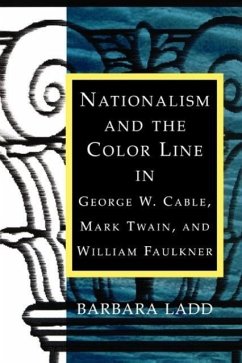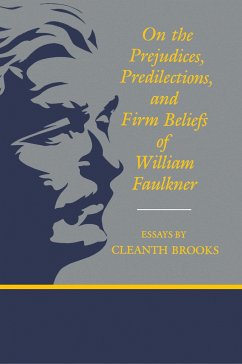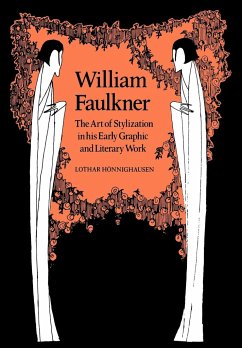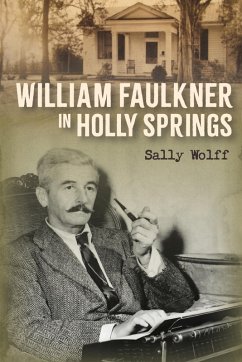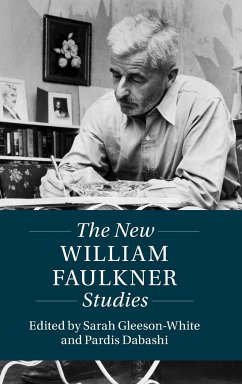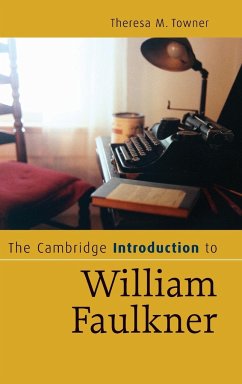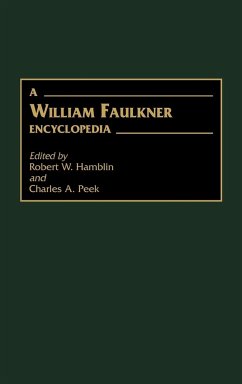
William Faulkner
The Abstract and the Actual
Versandkostenfrei!
Versandfertig in 1-2 Wochen
24,99 €
inkl. MwSt.

PAYBACK Punkte
12 °P sammeln!
William Faulkner was one of the few major writers of the period following World War I to retain a sense of the place of abstractions in life and in art. Faulkner saw life as a process of flux and change and abstractions as a means of either denying actuality or of coping with change and providing a solid touchstone in the flux. William Faulkner: The Abstract and the Actual is the first critical study of Faulkner to examine in depth the theme of evasion and distortion of existence through abstractions- a theme that can be found to a greater or lesser degree in every Faulkner novel. The book cov...
William Faulkner was one of the few major writers of the period following World War I to retain a sense of the place of abstractions in life and in art. Faulkner saw life as a process of flux and change and abstractions as a means of either denying actuality or of coping with change and providing a solid touchstone in the flux. William Faulkner: The Abstract and the Actual is the first critical study of Faulkner to examine in depth the theme of evasion and distortion of existence through abstractions- a theme that can be found to a greater or lesser degree in every Faulkner novel. The book covers the entire seventeen-novel canon and includes discussions of a significant number of short stories. Its thematic organization points out the unity and continuity of Faulkner's work. Examining the interrelationships between Faulkner's fiction and modern thinking, Panthea Broughton shows the insight Faulkner had into the philosophical problem of the abstract versus the actual. She concludes that the central dilemma in Faulkner's fiction- resistance to flux or change- is also one of the salient problems of the modern world.




